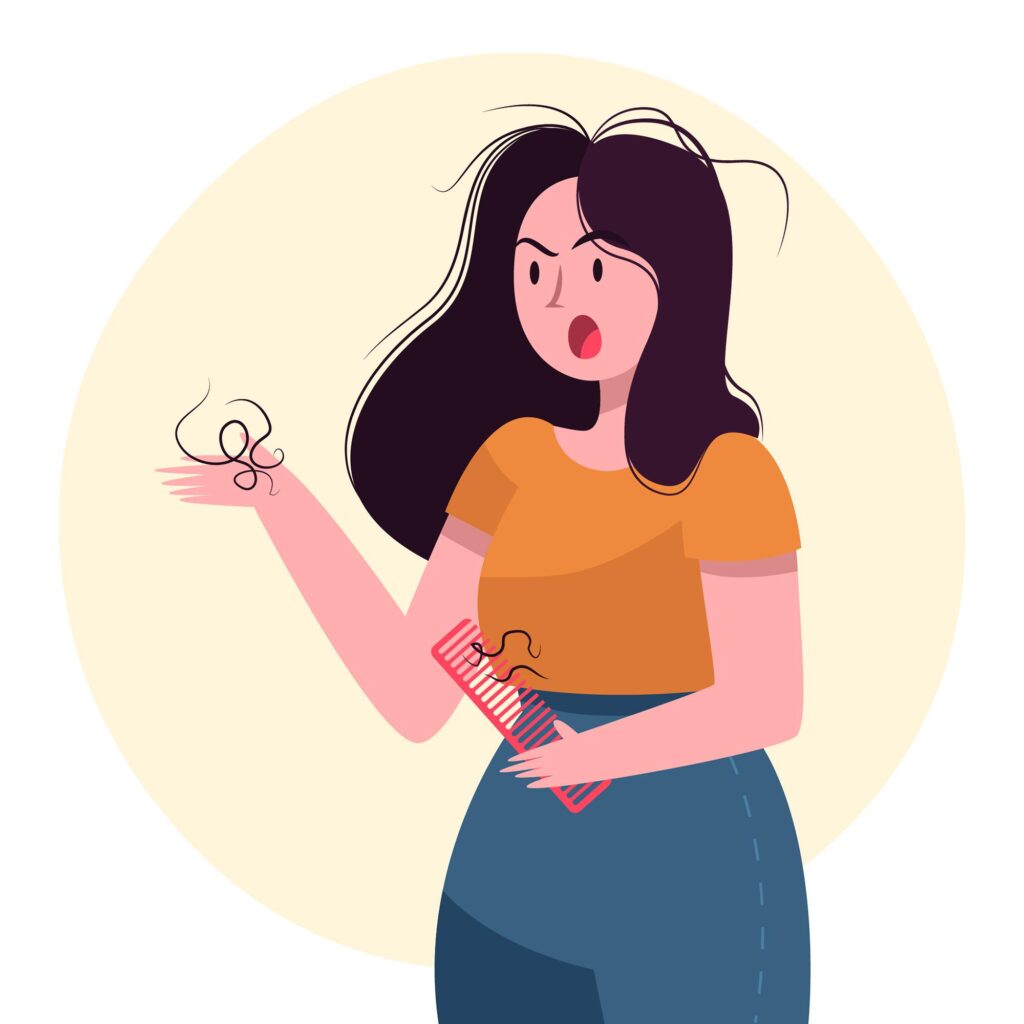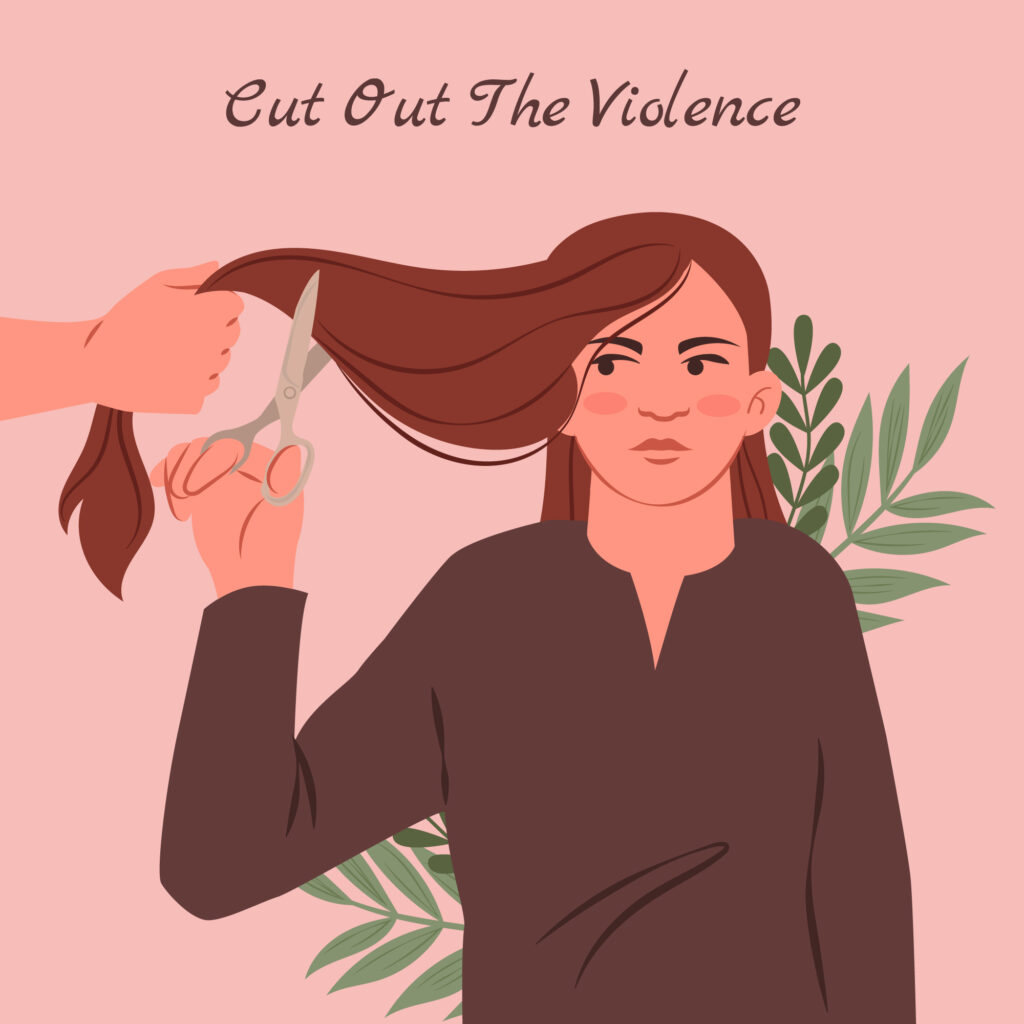Table of Contents
What is Rout Hair?
Rout Hair means a specific type of hair damage characterized by breakage and weakening at the root. Understanding what Rout Hair is and how it differs from other forms of hair damage is crucial for effective prevention and treatment. In this section, we’ll drive into the definition and nature of Rout Hair, providing a clear explanation to help you recognize and address this issue.
Understanding the Causes of Rout Hair

It is important to know the causes of rout hair for taking care and preventing it. Reasons such as poor hair care routines, environmental stressors, and nutritional deficiencies can contribute to the development of Rout Hair. This section will explore the various causes of Rout Hair, offering deep into how these factors weaken hair at the root and what steps can be taken to mitigate them.
By focusing on these aspects, you’ll gain a comprehensive understanding of Rout Hair, setting the foundation for better prevention and care strategies.
Identifying Rout Hair

Symptoms and Signs
Identifying Rout Hair early can prevent further damage and ensure timely treatment. Symptoms of Rout Hair include noticeable thinning at the roots, increased hair breakage, and visible scalp patches. This section will detail the common signs and symptoms of Rout Hair, helping you recognize when your hair needs special attention.
How to Diagnose Rout Hair
Proper diagnosis of Rout Hair is essential for effective treatment. This involves both self-assessment techniques and professional evaluations. We’ll guide you through the steps of diagnosing Rout Hair, including what to look for during a self-examination and when to seek professional help. By understanding the diagnostic process, you can take proactive measures to address Rout Hair properly and effectively.
Preventing Rout Hair

Daily Hair Care Routine to Prevent Rout Hair
Establishing a daily hair care routine is crucial for preventing Rout Hair. This section will outline essential practices, such as gentle washing techniques, using the right hair care products, and avoiding excessive heat styling. By incorporating these habits into your daily routine, you can maintain strong, healthy hair and minimize the risk of Rout Hair.
Best Products for Preventing Rout Hair
For getting better solution, you have to choose right products. We’ll recommend the best shampoos, conditioners, and treatments specifically formulated to strengthen hair at the roots and prevent damage. Learn about key ingredients to look for and how to decide products that support overall hair health and prevent Rout Hair.
Here are some recommended products:
- Shampoos and Conditioners: Look for sulfate-free, hydrating formulas like Pureology Hydrate Shampoo and Conditioner or Olaplex No.4 Bond Maintenance Shampoo and No.5 Bond Maintenance Conditioner. These products are gentle on the scalp and help maintain moisture balance.
- Leave-In Treatments: Consider using leave-in treatments such as It’s a 10 Miracle Leave-In Product or Redken One United All-In-One Multi-Benefit Treatment to protect hair from heat and environmental damage.
- Hair Masks: Incorporate a weekly deep conditioning mask like Briogeo Don’t Despair, Repair! Deep Conditioning Mask or Moroccanoil Intense Hydrating Mask to strengthen and nourish hair.
- Scalp Treatments: Use scalp treatments like Nioxin Scalp Recovery Serum or The Ordinary Multi-Peptide Serum for Hair Density to support a healthy scalp and strong hair roots.
Diet and Nutrition Tips

A balanced diet rich in essential nutrients is vital for maintaining healthy hair and preventing Rout Hair. This section will provide dietary recommendations, highlighting vitamins and minerals that promote strong hair growth. By incorporating these nutrition tips into your diet, you can support your hair from the inside out and reduce the likelihood of developing Rout Hair.
Here are some dietary recommendations:
- Protein: Hair is primarily made of protein, so ensure you’re consuming enough lean proteins such as chicken, fish, eggs, and legumes.
- Omega-3 Fatty Acids: These are essential for scalp health. Include foods like salmon, walnuts, and flaxseeds in your diet.
- Vitamins: Focus on vitamins that promote hair health:
- Vitamin A: Found in carrots, sweet potatoes, and spinach.
- Vitamin C: Found in citrus fruits, strawberries, and bell peppers, it helps with collagen production.
- Vitamin E: Found in nuts, seeds, and avocados, it supports healthy hair and scalp.
- Biotin: This B vitamin is crucial for hair growth. Include biotin-rich foods like eggs, almonds, and whole grains.
- Zinc: Essential for hair repair and growth, zinc can be found in foods like beef, pumpkin seeds, and lentils.
- Iron: Iron deficiency can lead to hair loss. Include iron-rich foods like spinach, red meat, and lentils in your diet.
Caring for Rout Hair

Effective Treatments
Treating Rout Hair effectively requires a combination of targeted treatments and consistent care. This section will cover the most effective treatments available, including strengthening shampoos and conditioners, deep conditioning masks, and leave-in treatments. Products like Olaplex Hair Perfector No.3, Aveda Damage Remedy Daily Hair Repair, and Kérastase Resistance Masque Force Architecte can help repair and fortify hair. These treatments help to revamp hair strength and prevent further breakage.
Home Remedies
In addition to commercial products, several home remedies can help manage Rout Hair. Natural oils like Amla Oil, coconut oil, argan oil, and castor oil are excellent for nourishing the scalp and strengthening the hair shaft. Regular scalp massages with these oils can improve blood circulation and promote healthier roots. DIY hair masks made from ingredients like honey, avocado, and egg can also provide deep conditioning benefits, enhancing hair strength and resilience.
Professional Treatments and When to Seek Help
Sometimes, Rout Hair requires professional intervention. Salon treatments such as keratin treatments, protein treatments, and scalp treatments can provide intensive care that over-the-counter products cannot. Treatments like Brazilian Blowout or Redken Heatcure are designed to repair and protect hair from the inside out. Knowing when to seek professional help is crucial—if you experience excessive hair loss, persistent scalp issues, or if home treatments and products do not seem to improve your Rout Hair, it’s time to consult a dermatologist or trichologist for a tailored treatment plan.
Maintaining Healthy Hair

Long-term Care Tips for Healthy Hair
Maintaining healthy hair over the long term is key to preventing Rout Hair. This section will offer tips for consistent hair health, such as regular trims to avoid split ends, gentle hair washing techniques, and minimizing the use of heat styling tools. Adopting these practices can help you sustain strong, resilient hair and reduce the risk of Rout Hair.
Lifestyle Changes for Better Hair Health
Your overall lifestyle drastically impacts the health of your hair. This section will explore various lifestyle changes that can promote better hair health and prevent Rout Hair. Key recommendations include:
- Balanced Diet: Continue to focus on a nutrient-rich diet, including plenty of vitamins and minerals essential for hair growth.
- Hydration: Ensure you stay well-hydrated, as water is crucial for maintaining the moisture balance in your hair.
- Stress Management: High stress levels can lead to hair problems. Practices like yoga, meditation, and regular exercise can help manage stress and promote healthier hair.
- Sleep: Quality sleep is vital for overall health, including hair health. Aim for 7-9 hours of sleep per night to support hair growth and repair.
Common Myths About Rout Hair

Debunking Popular Myths
There are many myths and misconceptions about Rout Hair that can lead to ineffective or even harmful hair care practices. This section will debunk popular myths such as “Rout Hair is caused solely by genetics” or “Cutting hair frequently will stop Rout Hair.” By providing accurate information, we aim to clarify misunderstandings and help you adopt more effective hair care routines to combat Rout Hair.
Myth: Rout Hair is Caused Solely by Genetics
- Reality: While genetics can play a role in hair health, Rout Hair is often caused by a combination of factors including poor hair care routines, nutritional deficiencies, and environmental stressors. Proper care and a healthy lifestyle can significantly mitigate the risk of Rout Hair.
Myth: Cutting Hair Frequently Will Stop Rout Hair
- Reality: Regular trims can help prevent split ends and breakage, but they do not directly prevent Rout Hair. Preventing Rout Hair involves a comprehensive approach, including proper hair care products, nutrition, and avoiding excessive styling.
Myth: Rout Hair Only Affects Certain Hair Types
- Reality: Rout Hair can affect any hair type, regardless of texture or thickness. All hair types require proper care to prevent damage and maintain health.
Facts vs. Fiction

Understanding the difference between facts and fiction is essential for proper hair care. In this section, we will present scientifically backed facts about Rout Hair, addressing common misconceptions such as “Only expensive products can prevent Rout Hair” or “Natural remedies are always better than professional treatments.” By distinguishing facts from fiction, you can make informed decisions about how to best care for and prevent Rout Hair.
By debunking these myths and providing clear, factual information, this section will empower you with the knowledge needed to take better care of your hair and effectively prevent and manage Rout Hair.
Myth: Expensive Products Are Necessary to Prevent Rout Hair
- Reality: While some high-quality products can be beneficial, there are many affordable options that are effective in preventing and treating Rout Hair. The key is to look for products with nourishing and strengthening ingredients.
Myth: Natural Remedies Are Always Better Than Professional Treatments
- Reality: Natural remedies can be helpful, but they are not always a substitute for professional treatments. In some cases, professional treatments are necessary to address severe Rout Hair and should be considered alongside natural remedies.
Conclusion
Summary of Key Points
In this ultimate guide to Rout Hair, we’ve explored the essential aspects of understanding, preventing, and caring for this common hair issue. We’ve defined Rout Hair, identified its causes, and provided practical tips for prevention and treatment. Key takeaways include establishing a healthy hair care routine, using the right products, maintaining a balanced diet, and knowing when to seek professional help.
Final Tips and Recommendations
To maintain healthy hair and effectively prevent Rout Hair, remember these final tips:
- Consistency is Key: Stick to a regular hair care routine that includes gentle washing, conditioning, and using protective products.Also,try to avoid hair highlights
- Choose Quality Products: Opt for hair care products that are specifically designed to strengthen and protect your hair, such as sulfate-free shampoos and nourishing conditioners.
- Focus on Nutrition: Ensure your diet includes essential nutrients like protein, vitamins, and minerals that promote hair health.
- Avoid Excessive Heat and Chemicals: Minimize the use of heat styling tools and harsh chemical treatments to reduce the risk of hair damage.
- Stay Hydrated and Manage Stress: Drink plenty of water and practice stress-reducing activities to support overall hair health.
By following these recommendations and incorporating the strategies outlined in this guide, you can effectively prevent and manage Rout Hair, ensuring your hair remains healthy, strong, and vibrant
Frequently Asked Questions
What causes Rout Hair?
Rout Hair can be caused by several factors, including poor hair care practices, excessive heat styling, chemical treatments, nutritional deficiencies, stress, and environmental factors such as pollution and UV exposure. Weakening at the roots often results from a combination of these factors.
How can I tell if I have Rout Hair?
Signs of Rout Hair include thinning at the roots, increased hair breakage, visible scalp patches, and overall hair fragility. If you notice your hair breaking more easily or thinning near the scalp, it may be indicative of Rout Hair.
Can Rout Hair be reversed?
While you can’t completely reverse damage that’s already occurred, you can significantly improve the condition of your hair with the right treatments. Using strengthening products, nourishing hair masks, and scalp treatments can help repair and fortify hair. Consistent care will help prevent further damage.
Is Rout Hair a permanent condition?
Rout Hair is not necessarily permanent, but it requires ongoing care to manage and prevent further damage. With the right hair care routine and lifestyle changes, you can restore and maintain the health of your hair over time.
Can diet affect Rout Hair?
Yes, diet plays a crucial role in hair health. Nutrients such as protein, vitamins (A, C, D, E), biotin, zinc, and iron are essential for strong, healthy hair. A diet lacking in these nutrients can lead to weak hair and increase the risk of Rout Hair.
What are the best treatments for Rout Hair?
The best treatments for Rout Hair include using sulfate-free shampoos, deep conditioning masks, and leave-in treatments designed to strengthen hair. Products like Olaplex Hair Perfector No.3, Redken Extreme Strength Builder Plus, and scalp treatments such as The Ordinary Multi-Peptide Serum for Hair Density are effective in treating and preventing Rout Hair.
How often should I trim my hair to prevent Rout Hair?
Regular trims every 6-8 weeks can help prevent split ends and breakage, which are common in Rout Hair. While trimming won’t stop Rout Hair at the roots, it helps maintain overall hair health and appearance.
Are natural remedies effective for Rout Hair?
Natural remedies such as coconut oil, argan oil, and DIY hair masks made with ingredients like honey and avocado can be effective in nourishing and strengthening hair. However, they may not be as potent as professional treatments, so combining both approaches is often the best strategy.
Can Rout Hair lead to permanent hair loss?
Rout Hair itself doesn’t usually lead to permanent hair loss, but if left untreated, the ongoing damage could contribute to thinning hair and potentially exacerbate hair loss over time. Early intervention and proper care are key to preventing this outcome.
When should I consult a professional for Rout Hair?
If you notice excessive hair loss, persistent scalp issues, or if home treatments and over-the-counter products are not improving your hair condition, it’s advisable to consult a dermatologist or trichologist. They can provide a professional diagnosis and recommend specialized treatments tailored to your needs.



1 Comment
Hey